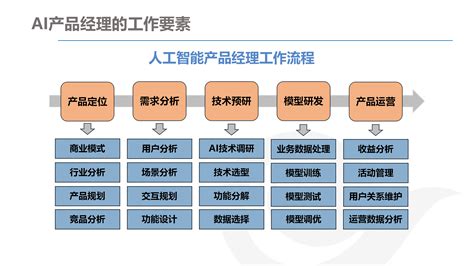地产科技产品经理职位
Title: Navigating the Role of a Technology Product Manager
In the fastpaced world of technology, the role of a Product Manager is both dynamic and crucial. As a bridge between technical teams and business objectives, a Technology Product Manager plays a pivotal role in driving innovation, shaping product strategy, and delivering value to customers. Let's delve into the key responsibilities, essential skills, and effective strategies for excelling in this role.
Key Responsibilities:
1.
Product Strategy and Roadmap:
Technology Product Managers are responsible for defining the product vision and strategy in alignment with the company's goals. They develop product roadmaps outlining feature prioritization and timelines.2.
Stakeholder Management:
Effective communication and collaboration with crossfunctional teams including engineers, designers, marketers, and executives are essential. Product Managers must balance competing priorities and ensure alignment towards common objectives.3.
Market Research and Analysis:
Understanding market trends, customer needs, and competitive landscapes is imperative for making informed product decisions. Product Managers conduct thorough market research and gather user feedback to iterate and enhance products continuously.4.
Product Development:
Product Managers work closely with engineering teams throughout the development lifecycle, from ideation and design to implementation and testing. They provide clear requirements, prioritize features, and make tradeoffs when necessary.5.
Launch and GotoMarket Strategy:
Planning and executing successful product launches require meticulous coordination across marketing, sales, and support teams. Product Managers develop gotomarket strategies to maximize product adoption and customer satisfaction.6.
Performance Monitoring and Optimization:
After launch, Product Managers monitor key metrics to assess product performance and user engagement. They iterate based on feedback and data analysis to continuously improve the product.Essential Skills:
1.
Technical Acumen:
While not always required to code, a solid understanding of technology and its implications is essential for effective communication with engineering teams and evaluating technical feasibility.2.
Business Acumen:
Product Managers must align product decisions with business objectives, understanding market dynamics, revenue models, and competitive landscapes.3.
Communication Skills:
Clear and concise communication is paramount for conveying the product vision, gathering requirements, and fostering collaboration across teams.4.
Analytical Skills:
The ability to analyze data, interpret metrics, and make datadriven decisions is crucial for optimizing product performance and identifying areas for improvement.5.
Leadership and Influence:
Product Managers must lead without authority, inspiring and motivating crossfunctional teams towards a common goal while navigating competing priorities and stakeholder interests.6.
Adaptability:
In the rapidly evolving tech industry, adaptability to change and willingness to learn new technologies and methodologies are key to staying ahead.Effective Strategies:
1.
CustomerCentric Approach:
Prioritize understanding customer needs and pain points to develop products that truly add value and differentiate from competitors.2.
Agile Methodologies:
Embrace agile practices to iterate quickly, respond to market feedback, and deliver incremental value to customers.3.
CrossFunctional Collaboration:
Foster a culture of collaboration and transparency across teams, breaking down silos to ensure everyone is aligned towards shared objectives.4.
User Feedback Loop:
Establish mechanisms for gathering and incorporating user feedback throughout the product lifecycle, ensuring continuous improvement and customer satisfaction.5.
Risk Management:
Proactively identify and mitigate risks, whether technical, marketrelated, or organizational, to minimize potential setbacks and maximize the likelihood of success.6.
Continuous Learning:
Stay updated on industry trends, emerging technologies, and best practices through networking, conferences, and ongoing education to drive innovation and maintain a competitive edge.
In conclusion, being a successful Technology Product Manager requires a unique blend of technical expertise, business acumen, and soft skills. By effectively navigating the responsibilities, honing essential skills, and implementing strategic approaches, Product Managers can drive product innovation, deliver exceptional value to customers, and contribute to the success of their organizations in the everevolving tech landscape.











